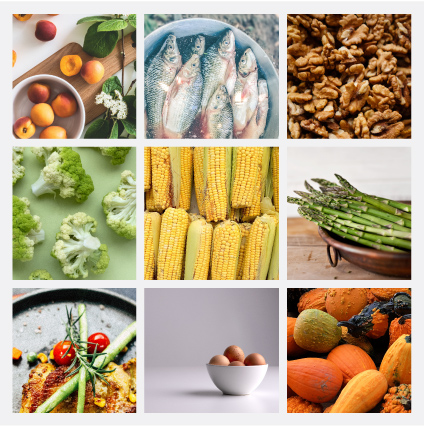
Can my diet improve my vision?
Absolutely. Vision is probably the most important of our five senses and eye health is integral to our general health. Nutrients are especially important for eyes. They help maintain eye function, protect your eyes against harmful light, and reduce the development of age-related degenerative diseases such as cataracts, macular degeneration, dry eyes, glaucoma and even diabetes. Whilst some of these conditions can be hereditary and due to the ageing process, our diet can plays an vital role in countering this.
Here are 6 key nutrients that benefit your eyes.
Vitamin A
Vitamin A deficiency is one of the most common causes of blindness in the world and can also lead to dry eyes. It is essential for maintaining our eyes ‘light-sensing’ cells, also known as photoreceptors. Whilst commonly found in eggs, liver and dairy products, our body can also convert certain plant-based carotenoids such as kale and spinach into vitamin A also.
Omega-3 Fatty Acids
Omega 3 fatty acids, EPA and DHA can help prevent dry eyes and reduce the risk of diabetic retinopathy. DHA is found in high amounts in your retina, where it can help maintain eye function. It’s also important for brain and eye development during infancy. The best dietary source of EPA and DHA is oily fish.
Vitamin C
More than any other organs, our eyes require high amounts of antioxidants. For this, Vitamin C fits the bill perfectly. The concentration of Vitamin C is higher in the aqueous humor (the liquid that fills the outermost part of your eye). Generous amounts of vitamin C are found in many fruits and vegetables, including peppers, citrus fruits, kale, grapes and broccoli.
Vitamin E
Our retina has a high concentration of fatty acids, therefore adequate vitamin E intake is important for optimal eye health. Vitamin E deficiency may lead to visual degeneration and blindness. The best dietary sources of vitamin E include almonds, sunflower seeds, and vegetable based oils like flaxseed.
Zinc
Zinc plays an important role in eye function. It also appears to be involved in the formation of visual pigments in your retina. For this reason, zinc deficiency may lead to night blindness. Studies suggests that supplements may slow the early development of macular degeneration in older adults. Natural sources of zinc can be found in oysters, meat, pumpkin seeds, and peanuts
Lutein and Zeaxanthin
Functioning as a sunblock and protection against blue light, lutein and zeaxanthin plays an important role in protecting our eyes. Concentrated in the macula, the central part of the retina, lutein and zeaxanthin usually occur together in foods such as: spinach, swiss chard, kale, parsley, pistachios, and green peas.
In essence, a healthy, balanced diet reduces our risk of eye disease. Include lots of omega-3 fats, found in oily fish and lutein and zeaxanthin found in dark-green, leafy vegetables such as spinach and kale and broccoli. Vitamins which are high in antioxidants can combat the aging process and UV damage by neutralising the responsible particles known as free radicals.
The eye is an organ like the rest of the body, so maintain your health and well being by being mindful of what you eat.
(Ref: Healthline May 2019)
